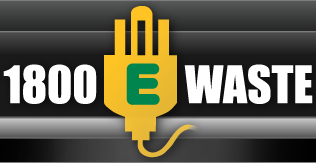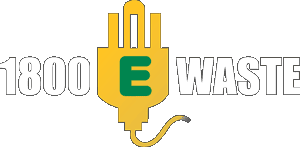Computer recycling protects more than just the environment
In such a digitally advanced world, most of our personal information can now be accessed at the click of a button. From social media sites to online banking, there has never been so much sensitive information on our computers, mobile phones and laptops. So when it comes to throwing away your obsolete electronics, we may need to think carefully about where we dump them.
You wouldn’t throw your old passport onto the street, so why leave your old computer and e-waste on the kerb?
Fraud has become a very real and very expensive threat to people all over the world, and costs Australians more than $2.2 billion every year according to official statistics. For this reason, it’s recommended that we shred old bills, keep PIN numbers private and never to disclose too much personal information over the phone or to companies that contact us directly. The rules are endless, but when it comes to discarding our old electronics, we seem more than happy to leave our old computers on the kerbside – an invite for even the most basic hacker to come and steal our most private information.
Companies and businesses don’t just put their own information at risk – irresponsibly disposing of your electronic waste can cost your customers too.
For companies and businesses, it’s important to remember that our computers might not just contain our own personal information, but also our clients too. Whether you work in pharmaceuticals, banking, or construction, your clients share confidential information with you that they certainly wouldn’t want getting into the wrong hands. Consider Sony and how much their embarrassing hacking scandal must have cost them – it’s certainly not something you want happening to you.
Computer Recycling – Data destruction and e waste recycling – go hand in hand.
Whilst we usually preach about the importance of responsibly recycling your electronic waste, the threat of fraud adds another dimension to why recycling your electronic waste should be high up on your radar. When looking for an ewaste recycler, check their data destruction policy. Some might just offer data wiping or re formatting, you should aim to use a company that offers physical data destruction. In this process, hard drives are taken apart hand by hand and then shredded so that it would be impossible to rebuild, let alone retrieve information.
Computer Recycling done right
Don’t be a victim of identity theft or fraud, make sure your electronic waste recycler is destroying your data effectively.
1800ewaste recycle as much as possible, currently 95-98% (by weight) of all collected ewaste is fully recycled into secondary materials for future use. Deleted files can be retrieved off a hard-drive. 1800eWaste physically destroy your hard drive so no information will every be found.
The process is detailed here. Hard drives are shredded to prepare the ewaste to be thoroughly sorted. The small debris is shaken to ensure that it is evenly spread out on the conveyor belt, before it gets broken down even more.
Call 1800ewaste (1800 392 783) or fill in our online booking form.


